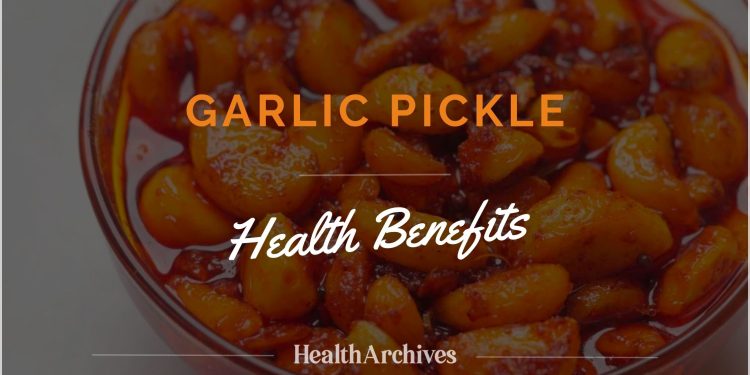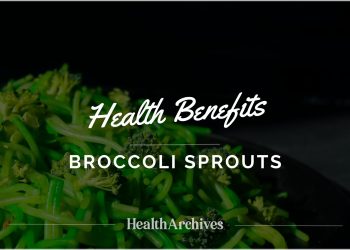Garlic is a popular ingredient in many cuisines around the world. It adds flavor, aroma, and spice to dishes. But did you know that garlic also has many health benefits? And did you know that pickling garlic can enhance its benefits even more?
In this post, we will explore the health benefits of pickled garlic and why you should include it in your diet. We will also share some tips on how to make your own pickled garlic at home.
What is Pickled Garlic?
Pickled garlic is garlic that has been preserved in vinegar, salt, sugar, and spices. The pickling process helps to extend the shelf life of garlic and also changes its texture and flavor. Pickled garlic becomes softer, sweeter, and less pungent than raw garlic. It also absorbs the flavors of the pickling liquid and spices.
Pickled garlic can be eaten as a snack, added to salads, sandwiches, dips, sauces, or used as a garnish. It can also be used in cooking, but keep in mind that heating may reduce some of its health benefits.
What are the Health Benefits of Pickled Garlic?
Garlic has a rich history and has been used for medicinal purposes for thousands of years. It has been shown to have antibacterial, antiviral, antifungal, anti-inflammatory, and antioxidant properties. It can help to boost the immune system, prevent infections, lower blood pressure, cholesterol, and blood sugar, improve heart health, and protect against cancer.
Pickled garlic has the same benefits as raw garlic, but with some added advantages. Here are some of the health benefits of pickled garlic:
- It can help to prevent colds and flu. Garlic contains a compound called allicin, which is responsible for its strong smell and taste. Allicin has been shown to have antiviral and antibacterial effects, and can help to fight off the common cold and flu viruses. Pickled garlic can help to increase the intake of allicin, especially if you don’t like the taste of raw garlic. Eating pickled garlic regularly can help to boost your immunity and prevent or reduce the severity of colds and flu.
- It can help to lower blood pressure and cholesterol. Garlic can help to relax and dilate the blood vessels, which can lower blood pressure and improve blood flow. It can also help to lower the levels of LDL (bad) cholesterol and triglycerides, and increase the levels of HDL (good) cholesterol. These effects can help to prevent or reduce the risk of heart disease, stroke, and atherosclerosis. Pickled garlic can help to provide these benefits, as it contains the same active compounds as raw garlic, such as allicin, diallyl sulfide, and S-allyl cysteine.
- It can help to prevent or treat cancer. Garlic has been shown to have anti-cancer properties, as it can help to inhibit the growth and spread of cancer cells, induce apoptosis (cell death), and prevent DNA damage. Garlic can also help to modulate the immune system and enhance the effects of chemotherapy and radiation therapy. Some of the compounds that are responsible for these effects are organo-sulfur compounds, such as diallyl disulfide, diallyl trisulfide, and S-allyl mercaptocysteine. Pickled garlic can help to increase the intake of these compounds, as they are more stable and bioavailable in pickled garlic than in raw garlic.
- It can help to improve digestion and gut health. Garlic can help to stimulate the production of gastric juices and enzymes, which can improve digestion and absorption of nutrients. It can also help to balance the gut flora, as it has prebiotic and probiotic effects. Prebiotics are substances that feed the beneficial bacteria in the gut, while probiotics are live microorganisms that confer health benefits to the host. Garlic can act as both, as it contains fructans (a type of prebiotic fiber) and lactobacilli (a type of probiotic bacteria) that can help to improve gut health and prevent or treat digestive disorders, such as diarrhea, constipation, irritable bowel syndrome, and inflammatory bowel disease . Pickled garlic can help to provide these benefits, as the pickling process can enhance the prebiotic and probiotic effects of garlic.
Vitamins in Garlic:
Garlic pickle is not only tasty, but also nutritious. It contains many vitamins that are essential for your health and well-being. Garlic is a rich source of vitamin C, which can help to boost your immunity, fight infections, and protect your cells from oxidative damage. Garlic also has vitamin A, which can help to maintain your vision, skin, and mucous membranes.
Garlic also provides vitamin K, which can help to regulate your blood clotting and bone health. In addition, garlic has B-vitamins, such as folate, thiamine, niacin, and B-6, which can help to support your metabolism, nervous system, and red blood cell production. The pickling liquid and spices can also add some vitamins to garlic pickle, such as vitamin E, which can help to prevent inflammation and improve your skin and hair health. Garlic pickle is a great way to get more vitamins in your diet.
How to Make Pickled Garlic at Home?
Making pickled garlic at home is easy and fun. You can customize the flavor and spice level according to your preference. Here are the basic steps to make pickled garlic at home:
- Peel and wash the garlic cloves. You can use any variety of garlic, but make sure to choose fresh and firm cloves. You can peel the garlic by hand, or use a garlic peeler or a knife. Wash the garlic cloves under running water and pat them dry with a paper towel.
- Prepare the pickling liquid and spices. You can use any type of vinegar, such as white vinegar, apple cider vinegar, or rice vinegar. You can also add some sugar, salt, and water to balance the acidity and flavor. For the spices, you can use any combination of herbs and spices, such as bay leaves, peppercorns, mustard seeds, dill, thyme, rosemary, oregano, red pepper flakes, or turmeric. You can also add some lemon slices, ginger, or garlic scapes for extra flavor and color. Bring the pickling liquid and spices to a boil in a saucepan, then reduce the heat and simmer for about 10 minutes.
- Pack the garlic cloves in sterilized jars. You can use any size of glass jars, but make sure to wash and sterilize them before use. You can sterilize the jars by boiling them in water for 10 minutes, or by baking them in the oven at 180°C for 15 minutes. Pack the garlic cloves tightly in the jars, leaving some space at the top. You can also add some more spices or herbs if you like.
- Pour the hot pickling liquid over the garlic cloves. Carefully pour the hot pickling liquid over the garlic cloves, making sure to cover them completely. Leave some headspace at the top of the jars, and wipe the rims with a clean cloth. Seal the jars with lids and bands, and let them cool completely.
- Store the pickled garlic in a cool and dark place. You can store the pickled garlic in a cool and dark place, such as a pantry, a cupboard, or a cellar. The pickled garlic will be ready to eat after about a week, but it will taste better if you let it age for a month or longer. The pickled garlic can last for up to a year, as long as the jars are sealed and the garlic is submerged in the pickling liquid. Once you open a jar, refrigerate it and use it within a month.
FAQs about Garlic Pickle
Here are some frequently asked questions about pickled garlic and its health benefits:
Is pickled garlic good for weight loss?
Pickled garlic can help to promote weight loss, as it can help to boost the metabolism, suppress the appetite, and reduce the absorption of fat and sugar. However, pickled garlic alone is not enough to lose weight. You also need to follow a balanced diet and exercise regularly.
Is pickled garlic good for diabetes?
Pickled garlic can help to lower blood sugar levels and improve insulin sensitivity, which can help to prevent or manage diabetes. However, pickled garlic also contains some sugar and vinegar, which can affect blood sugar levels. Therefore, you should monitor your blood sugar levels and consult your doctor before using pickled garlic if you have diabetes.
Is pickled garlic good for skin?
Pickled garlic can help to improve skin health, as it can help to fight acne, infections, and inflammation. It can also help to prevent or reduce the signs of aging, such as wrinkles, sagging, and spots. However, pickled garlic can also cause allergic reactions, irritation, or burns on some people’s skin. Therefore, you should do a patch test before applying pickled garlic on your skin, and avoid using it if you have sensitive skin or skin conditions.
Is pickled garlic good for hair?
Pickled garlic can help to prevent hair loss, as it can help to stimulate blood circulation, nourish the hair follicles, and fight infections and inflammation. It can also help to improve hair growth, thickness, and shine. However, pickled garlic can also cause a strong smell, irritation, or dryness on some people’s hair. Therefore, you should rinse your hair well after using pickled garlic, and avoid using it if you have dry or damaged












